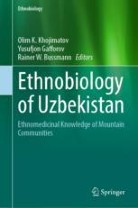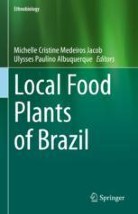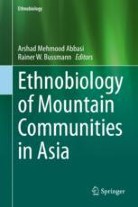
About this book series
Ethnobiology is the study of the dynamic relationship between plants, animals, people, and the environment. Academic and applied interests include ethnobotany, ethnozoology, linguistics, paleoethnobotany, zooarchaeology, ethnoecology, and many others. The field lies at a dynamic intersection between the social and biological sciences. The major contribution from the biological sciences has come from economic botany, which has a rich historical and scientific tradition. Indeed, the objectives of the colonial enterprise were as much about the quest for “green gold” –herbal medicines, spices, novel cultivars, and others—as it was for precious metals and sources of labor. The view that ethnobiology concerns mostly the discovery of new and useful biota extended into the 20th century. The social sciences have contributed to the field in both descriptive studies but also within quantitative approaches in cognitive anthropology that have led to general principles within ethnobiological classification. Ethnobiological research in recent years has focused increasingly on problem solving and hypothesis testing by means of qualitative and especially quantitative methods. It seeks to understand how culturally relevant biotas are cognitively categorized, ranked, named, and assigned meaning. It investigates the complex strategies employed by traditional societies to manage plant and animal taxa, communities, and landscapes. It explores the degree to which local ecological knowledge promotes or undermines resource conservation, and contributes to the solution of global challenges, such as community health, nutrition, and cultural heritage. It investigates the economic value and environmental sustainability to local communities of non-timber forest products, as well as the strategies through which individual ecological knowledge and practices encourage resilience to change—modernization, climate change, and many others. Most importantly, contemporary ethnobiological research is grounded in respect for all cultures, embracing the principles of prior informed consent, benefit sharing, and general mindfulness.
- Electronic ISSN
- 2365-7561
- Print ISSN
- 2365-7553
- Series Editor
-
- Robert Voeks,
- John Richard Stepp
Book titles in this series
-

-
Ethnobiology of Uzbekistan
Ethnomedicinal Knowledge of Mountain Communities
- Editors:
-
- Olim K. Khojimatov
- Yusufjon Gafforov
- Rainer W. Bussmann
- Copyright: 2023
Available Renditions
- Hard cover
- eBook

-
Local Food Plants of Brazil
- Editors:
-
- Michelle Cristine Medeiros Jacob
- Ulysses Paulino Albuquerque
- Copyright: 2021
Available Renditions
- Hard cover
- Soft cover
- eBook

-
Ethnobiology of Mountain Communities in Asia
- Editors:
-
- Arshad Mehmood Abbasi
- Rainer W. Bussmann
- Copyright: 2021
Available Renditions
- Hard cover
- Soft cover
- eBook

-
Neotropical Ethnoprimatology
Indigenous Peoples’ Perceptions of and Interactions with Nonhuman Primates
- Editors:
-
- Bernardo Urbani
- Manuel Lizarralde
- Copyright: 2020
Available Renditions
- Hard cover
- Soft cover
- eBook

